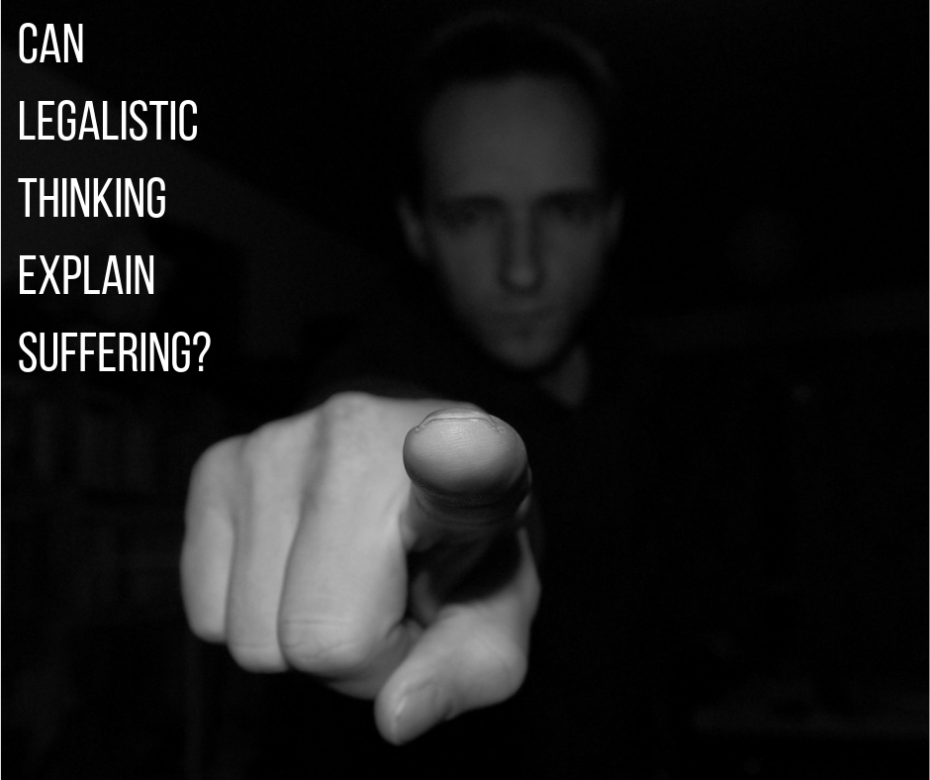Kūmāré is a 2011 documentary about a New Jersey man who pretends to be a guru from India—complete with accent—to see if he can get a following. The documentary is painful to watch because he does gather a following, and the people are totally convinced that Kūmāré is a spiritual man, with spiritual powers, who can help them. And since the audience knows this is all false, the documentary is experienced as dramatic irony.
The book of Job uses the same technique.
In the prologue, you’re told what’s really going on behind Job’s suffering. He is not being punished by God for sin, but is being tested by Satan for his faithfulness. Knowing that puts the speeches by Job’s friends—Eliphaz, Bildad, and Zophar—in a completely different light.
For example, Eliphaz says:
“Remember now, who ever perished being innocent?
Or where were the upright ever cut off?
Even as I have seen,
Those who plow iniquity
And sow trouble reap the same” (Job 4:7-8).
Translation: “Innocent people never suffer. Only bad people suffer. Therefore, Job, you must be bad.”
Eliphaz assumes that the world operates according to a strict law of reward and punishment based on your works.
Is that a safe assumption?
No!
From the prologue you know that Job hasn’t done anything to deserve what happened to him. He didn’t plow iniquity. He wasn’t reaping the consequences of his evil actions. The law of reward and punishment did not explain his suffering at all.
Next, consider what Bildad said:
Does God subvert judgment?
Or does the Almighty pervert justice?
If your sons have sinned against Him,
He has cast them away for their transgression.
If you would earnestly seek God
And make your supplication to the Almighty,
If you were pure and upright,
Surely now He would awake for you,
And prosper your rightful dwelling place (Job 8:3-6).
Translation: “God is just, so if something bad happened to you and your kids, you must have had it coming.”
What is Bildad assuming? That everything happens according to God’s strict justice. Is that a safe assumption?
No. Bildad blamed the children for their own demise (don’t ever try to comfort a grieving parent like that). But from the prologue, you know there is nothing to suggest Job’s children sinned. In fact, you are explicitly told that even if they had sinned in their thoughts, Job had sacrificed to cover them (Job 1:5). So blaming the children is not the right answer.
Moreover, the prologue tells you that justice was not the issue behind Job’s suffering. Instead, God wanted to prove to Satan that Job really did serve God for nothing (1:9). Something other than justice was at work in the world.
Finally, there is Zophar.
“Yet if you devote your heart to him
and stretch out your hands to him,
if you put away the sin that is in your hand
and allow no evil to dwell in your tent,
And your life would be brighter than noonday.
Though you were dark, you would be like the morning.
And you would be secure, because there is hope;
Yes, you would dig around you, and take your rest in safety” (Job 11:13-14, 17-18).
Translation: “If you stop sinning, life will be rosy and trouble free.”
Once again, Zophar is assuming that all of life can be explained in terms of reward and punishment.
But is that true? Will life be rosy as soon as you start obeying?
No. Job was already blameless. There was nothing more he could do to merit a blessed life—nevertheless, he, his wife, and his children, all suffered. So Zophar is wrong.
Not all of life can be explained in terms of reward and punishment for works. Yes, that does come into play. We do reap what we sow (Gal 6:7-9), but that is proverbially true, not absolutely true—not in this life. More often, in this life, we get grace, when we ought to get judgment. God is long-suffering.
In sum, Job’s three friends all shared the same basic worldview. They all believed that God and the world operate according to law. God relates to us on the basis on what we do. For them, there is no grace, no mercy, and no love. Consequently, when faced with Job’s suffering, they could offer him no comfort—only condemnation. You can avoid making the same mistake, by refusing to make the same assumptions. Instead of jumping to conclusions about why your friend is suffering, jump in with a helping hand to show them there is still love in the world.


